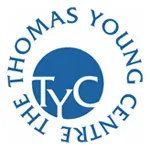The group has research interests in both theory and numerical simulation of condensed matter that span a wide range of topics in condensed matter physics, biophysics, and materials science. Topical interests at present include: electronic structure; mechanical, optical and magnetic properties; electronic and thermal transport; theory of ultra cold atomic gases; strongly correlated systems; materials for energy; biophysics and nanotechnology; non-equilibrium processes.
The group is a partner, with related activities at Imperial College and University College London, in the Thomas Young Centre for Theory and Simulation of Materials. Its research is supported by a number of computer clusters housed in a dedicated server room including a 480-processor HPC cluster.
Our Partners

Thomas Young Centre


